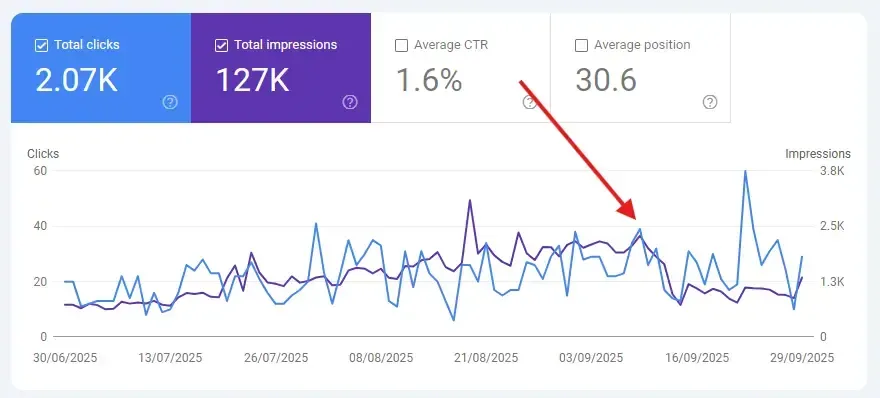What the heck? How to survive another Google Ads update
As sure as eggs is eggs, Google are masters of keeping us on our toes. Google deploys new updates to their search engine algorithms on a highly frequent basis – the effects typically have minimum impact on webmasters and search engine marketing professionals. However, every now and then they make an announcement that sends shock waves through the digital marketing community.
And Google’s update in February was one of those occasions.
What is Google’s latest update?
Google is changing the structure of its keyword match types. Phase match is being expanded and the broad match modifier is being retired with global rollout being completed by July 2021.
Before we explore how this may impact your business, let’s take a look at pre-update match types that would trigger a Google Ad being shown:
- Exact Match: specific keywords or phrases used in the same order.
- Phrase Match: specific keywords or phrases in any order.
- Broad Match: contextually similar words.
- Broad Match Modifier (BMM): signified by a plus sign, specific keywords or close variations in any order.
Using the keywords ‘men’s shoes’ example searches include:
- Exact Match: men’s shoes
- Phrase Match: buy men’s shoes
- Broad Match: buy gents’ shoes
- Broad Match Modifier (BMM): shoes for men
You now only have three options to choose from: exact, phrase and broad match.
Why have Google removed broad match modifier option?
Over the years Google have been taking control away from the advertisers with the promise of automation and sharper targeting, and this update is no different. According to Google, this update “brings the best of broad match modifier into phrase match” and creates a combination to make it even easier to target new customers while providing an easier way to control and manage keywords.
What does the update mean for my Adwords campaign?
You can continue to use BMM keywords until July, so in the short term there will be little or no effect on your Google Ads campaign; however, any new BMM keywords will act under the new logic, so it is recommended to bite the bullet and go with the phrase match moving forward.
But, what about the long term? It depends on the keyword types your campaigns rely on.
For campaigns that are phrase match heavy, you will most likely see an increase in ad impressions, clicks, and conversions with this update – and that means an increase to your PPC costs. For campaigns that rely on the broad match modifier, they are likely to see a decrease in ad impressions, clicks, and conversions as the new logic will reduce the reach of the Google Ad where the keyword order matters.
How to thrive with the latest Google Ads update
If it feels a little ambiguous, that’s because it is, but like with all Google updates, we learn to adapt to their demands! Here are 5 ways to manage the changes:
If it feels a little ambiguous, that’s because it is, but like with all Google updates, we learn to adapt to their demands! Here are 5 ways to manage the changes:
1. Stay up to date on digital marketing news and views
At this stage nobody is a 100% sure of the implications of the broad match modifier being retired, so it’s important you stay up to date and monitor your campaigns and the experiences of other account managers. There will be a host of information available online where best practices are discussed and evaluated.
2. Review, test and review negative keywords
Negative keywords are going to be your greatest ally in managing your budget and targeting specific customer groups. Remember, understanding who you don’t want to target is as valuable, if not more valuable, than knowing who you do.
The update is likely to send your website more traffic using phrase match keywords, so it is imperative you keep on reviewing and testing the negatives on your campaign. This is a crucial budget-saving task you frequently complete – you don’t want to keep paying out for irrelevant traffic!
3. Review your account structure
When you are doing your own Google Ads campaign, it’s easy to get a little gung-ho about it, but this update reaffirms why you need to adopt a by-match structure. You’ll most likely need to allocate more budget to campaigns with phrase match keywords and be in a position to make adjustments as and when they are needed. Yes, it will take an investment of time to restructure, but you will save time and money in the long term; plus, it will make monitoring performance and budget a lot easier!
4. Get comfortable with automated Smart bidding
For years there have been murmurings in the digital and web marketing world that Google are keen to push towards automated bidding, and here it is. Indeed, Google’s help page refers to combining broad match with Smart Bidding to reach more relevant searches – a clear indicator this is the future! This is the time to test out difference scenarios to get ahead of the competition.
5. Explore recommendations
Following on from point #4, and Google flexing their muscles with a push towards Smart Bidding, their algorithm created recommendations are going to be more important than ever. Using their powerhouse of knowledge, the recommendations of either adding new keywords or removing duplicates, should be explored. Particular attention should be paid for accounts that have historically bid on the same keywords for different match types. It would be foolhardy to ignore Google’s suggestions of how to improve reach.
The digital marketing landscape is both innovative and fast moving. Keeping up to speed with algorithm changes, shifts in SEO best practices and now the latest Google Ads update, is full on – especially when you have a business to run as well. While this update could potentially save time for some advertisers, others face a huge amount of time recalibrating existing campaigns.
Digital Presence is a Google Ads (Christchurch based) digital marketing agency. Using the latest monitoring and reporting technologies, our managed Google Ads campaigns are responsive to budget, market and industry changes; we review, tweak and test without you having to worry about a thing. We help our clients increase revenue and profits by managing their Google Ads accounts efficiently and successfully - creating more bang for their bucks.
And more good news? We don’t talk to you in industry jargon, contact Digital Presence today to arrange a no-obligation chat to discuss how we can help your business grow. Call 0274 278047 or drop us a line at hello@digitalpresence.co.nz to learn more.













